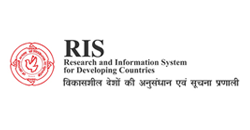Climate Finance & Technology
Developed countries have not fulfilled their multilaterally agreed commitments on climate finance and technology. The mammoth scale of finance required for transition to green economies, running into trillions of US dollars, cannot be achieved from internal budgetary sources, and need support from institutional bilateral, regional or multilateral sources, which are generally grants or concessional loans and from the private sector. Each country needs to tap the private investible funds lying with institutional investors, like pension funds, insurance companies, etc., across the globe. It requires a different ecosystem and enablers favouring green activities over fossil fuels-based ones. Enablers include appropriate carbon price, phasing out subsidies on fossil fuels, creating proper taxonomy of green projects, etc.
Bharat is ahead of schedule of attaining its Paris commitments in terms of installing renewable energy capacity in its energy mix. Some flagship policy and regulatory initiatives to promote renewable energy in Bharat include National Solar Mission, feed-in-tariff, Renewable Purchase Obligations (RPOs) and Renewable Energy Certificates (RECs). Demonstrating its resolve to lead the global efforts towards addressing climate change, India along with France launched the International Solar Alliance in 2015. 94 countries have so far signed and ratified the ISA Framework Agreement.
-
 Algeria
Algeria
A
-
 Jamaica
Jamaica
J
-
 Kiribati
Kiribati
K
-
 Palau
Palau
P
-
 Rwanda
Rwanda
R
- Vanuatu
V
-
 Zambia
Zambia













